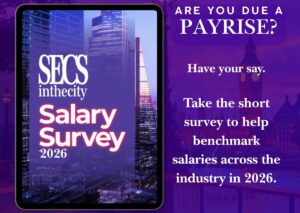Skills shortage in new hires cause businesses to regret almost half of their new hires new research reveals.
- Over half of businesses (61%) admit settling for candidate that did not sufficiently match the job role, while 56% rushed the hiring process
- Making a bad hire has more of an impact now than it did 12 months ago as economic resurgence and race for growth puts pressure on salaries
- More than half (53%) of business leaders feel pressure to pay new hires more than current employees, adding to the burden of making a bad hire
New analysis based on data from the past 12 month period reveals that 46% of senior decision makers believe they have made a bad hire in the past 12 months, with small businesses more likely to feel the impact.
This new data has been gathered by specialist talent solutions consultancy Robert Half and identifies the trends, issues and concerns of General Managers, Chief Financial Officers and Chief Information Officers face across the UK.
Demand for growth in businesses is driving faster hiring
Economic resurgence and appetite for growth over the past 12 months has increased recruitment demand, leading to a talent shortage that triggered poor hiring decisions. Three in five (61%) respondents felt that settling for a candidate whose skills did not match the role requirements was the main component in employing a bad hire, closely followed by rushing the hiring process (56%).
Mistakes like these will always be frustrating, but with urgency from businesses to recover losses and accelerate growth strategies, seven in 10 (70%) of businesses agree that the impact of making a bad hire is worse than it was 12 months ago. SMEs feel the pain more deeply than larger organisations, with 82% reporting increasingly severe negative impacts.
Implications of bad hires can be serious
Commenting on the findings, Matt Weston, Senior Managing Director for the UK, Ireland, UAE and BeNeLux, said: “Every company, regardless of its size, industry or sector, depends on its employees to achieve its objectives, which means maintaining a productive workforce and hiring skilled talent that adds value to the team. With this in mind, making a bad hire can have serious implications, as the time and expense taken to recruit and onboard a new employee can feel like wasted time and effort when it doesn’t work out.
“Bad hires tend to happen when businesses are unable to take the time required to plan a process, assess candidates and do their due diligence, which leads to rushed decisions and making the wrong compromises, especially in today’s tight market.”
Businesses that made a bad hire in the last 12 months that ultimately ended in the candidate and client parting ways will already have invested vital resources and now face the prospect of paying more for their next hire. Average starting salaries for professional services roles have increased by 4.9% in the last six months alone, and more than half (53%) of business leaders are having to pay new hires more than current employees.
Bearing in mind the additional cost, business leaders are keen to learn from past mistakes, with 44% agreeing that better vetting is the most important step for avoiding a bad hire. In a busy market where businesses may not be able to find all that they seek, identifying experience, knowledge and skills that cannot be compromised is also crucial (42%), although some compromise, for example on hybrid or remote working arrangements, may still be required.
Matt Weston added: With companies turning their attention to retaining talent and acquiring fresh skills to enable growth that can offset rising costs, making the right hiring decisions has never been more important and quite often bad hires can happen because the job description wasn’t right from the outset. With the widespread struggle for talent due to an ongoing skills shortage, headhunting could be a way to help reduce the risks involved with bringing a new employee onboard.”
About the Research
Robert Half experts analysed internal data for 12 months to 1 March 2022, comprising more than 4,000 data points, relating to 200 roles across the finance and accounting, financial services, technology, HR and marketing sectors. Six-month comparisons were made against data that was validated on 1 September 2021.
Robert Half also commissioned Rigour Research to conduct a survey amongst 300 C-suite level senior leaders between 17-28 February 2022. This is the source of the data point on business confidence. The C-suite level senior leaders operate with hiring responsibilities across small (50-249 employees), medium (250-499) and large (500+ employees) from the public sector, private, and publicly listed businesses across the UK.
About Robert Half
Founded in 1948, Robert Half is the world’s first and largest specialised talent solutions consultancy, working to fill professional services roles at all levels within the finance and accounting, banking, technology, HR, marketing and legal sectors. The company has more than 300 staffing locations worldwide and offers hiring and job search services at www.roberthalf.co.uk
Robert Half understands that it takes time and effort to evaluate the best talent strategy for different businesses. For further independent advice to assist with your recruitment and workforce planning efforts, visit www.roberthalf.co.uk/advice.
You may also enjoy reading about how older women can hold their own in the workplace















